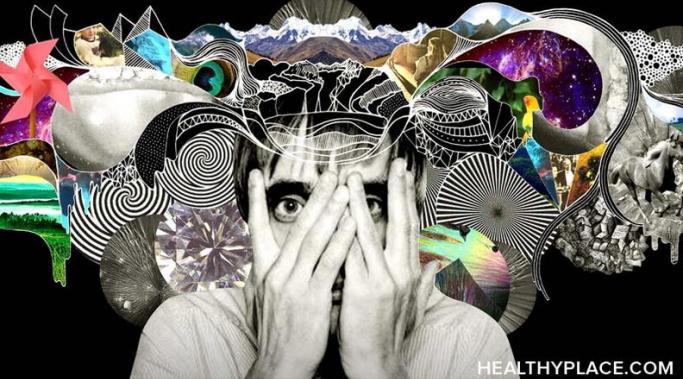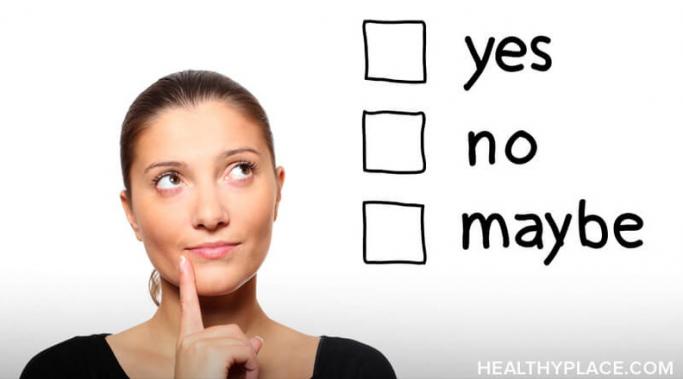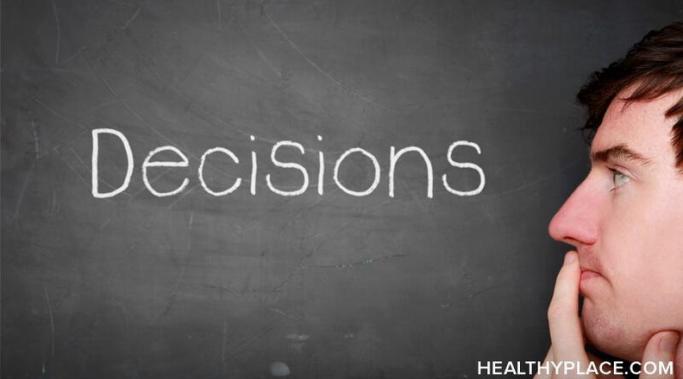Now, of course, no want wants to be bipolar, but people do make the conscious decision to admit to their bipolar disorder online. There are many reasons to do this but often people want to be able to express themselves in catharsis or reach out for support. These are perfectly good reasons.
But, unfortunately, that decision is not always met with understanding and support. In fact, sometimes it’s met with vicious hatred.
Not long ago I was in touch with someone newly-diagnosed with bipolar disorder who had started a blog to express his feelings on it. He was just an ordinary guy trying to do his best to make sense of the senseless.
And what happened? Quite simply he was attacked on all sides from the antipsychiatry crowd. Somehow they found him, zeroed in on him, and hounded him with hatred until he slinked off of Twitter altogether.
Breaking Bipolar
I have been seeing a psychiatrist for about 14 years now. There have been many different individuals, but I’ve been seeing one or another for most of that time.
And in all of that time I’ve noticed something – I get anxious before a psychiatric appointment. Even though I’ve been doing this seemingly forever, when it actually comes time to sit in the waiting room and then be taken to the tiny room with the dingy paint, I feel anxious.
I have not done a book review on here but that’s because I don’t tend to read help books on bipolar disorder – I write that material, not read it. But recently one such book has landed in my possession and I’d like to take the time to recommend it: Loving Someone with Bipolar Disorder – Understanding and Helping Your Partner (second edition) by Julie A. Fast and John D. Preston, PsyD.
People often ask me how to help others with bipolar disorder and I believe this book could help partners answer that question.
In spite of what some people would have you believe, I’m not actually the biggest fan of pharmaceutical companies. None of them are champions in my book. These companies only care about one thing – making money. And they will do whatever they think they can get away with to make that happen.
Now, that doesn’t mean that I don’t need and use their products, because I do, but I harbour no false illusions about who it is I’m in bed with.
And while I do believe that pharmaceutical companies have cleaned up their act a lot in terms of incentivising prescriptions of medication and I think doctors have done a lot to reject drug company incentives, let’s face it, drug companies will still market any way they can because that’s their job – to sell product.
And when drug companies step out of line, illegally market their drugs and fail to report proper safety data, I want their hand slapped – hard. And $3 billion dollars just isn’t going to do it.
This article is a continuation from Multi-Polar - The Many Moods of Bipolar Disorder part one.
Recently a reader asked me to describe the moods of bipolar disorder in my own words. OK, I thought, but a lot has been written (by me and others) about depression, mania and hypomania before. But then I thought about it and realized that there were actually many moods in bipolar disorder and just saying there are “up” and “down” moods sort of does a disservice to everyone struggling with bipolar disorder.
As I wrote, some people believe that if you don't have a mental illness, you can't understand someone with a mental illness. I'm not sure this is true.
I have been writing about mental illness for almost a decade now and part of the reason was to try and help people understand bipolar disorder and other mental illnesses. And I have succeeded in some regards. I get emails from people quite frequently that tell me how much more they understand about the disease now that they have read my writings. I am tremendously gratified by this.
But, of course, I reach a tiny percentage of people and the issue of mental illness stigma still affects us all. And some people, no matter how hard we try to explain ourselves to them, never seem to understand mental illness.
Which begs the question: can a person without a mental illness ever really understand what we’re going through?
I use the word “doctor” quite liberally and often use it interchangeably with “psychiatrist.” The reason is quite simple – psychiatrists are, in fact doctors, they are just specialists. Yes, that’s right, your psychiatrist has all the rights and privileges that any other doctor has and could probably remove your spleen, if the occasion called for it.
Nevertheless, there are some crucial differences between “doctors” in general and “psychiatrists” in particular. And sometimes you need a psychiatrist and sometime any old doctor will do. So how do you know if you need a psychiatrist?
One of the challenging things about being a person with a mental illness who talks about psychiatry (and doesn’t hate it) is that all those people who do hate psychiatry perk up and get mad. These people often identify as “antipsychiatrists” and I’m not their biggest fan. While I consider it quite reasonable to question your doctor, psychiatrist, treatment, therapist and other treatment aspects, I consider going after an entire branch of medicine ridiculous. There is no “antioncology” faction in spite of the fact that a large percentage of people with cancer die (depending on the type, of course).
And this manifests in many of our lives. It’s not that antipsychiatrists just attack me; it’s that people of that mindset attack your average person who is just trying to deal with a mental illness. It’s the people who say, “mental illness doesn’t really exist” or “psychiatric medicine doesn’t work” or many other things that many of us hear online and in our real lives all the time.
So how do you talk to these people who have decided that your disease doesn’t exist and you shouldn’t be in treatment?

![MP900444553[1]](/sites/default/files/styles/blog_listing/public/uploads/2012/07/MP9004445531.jpg?itok=GnVkuGu7)

![MP900321083[1]](/sites/default/files/styles/blog_listing/public/uploads/2012/06/MP9003210831.jpg?itok=qIqD0HL6)


![MP900285007[1]](/sites/default/files/styles/blog_listing/public/uploads/2012/06/MP9002850071.jpg?itok=jA3ISj4_)